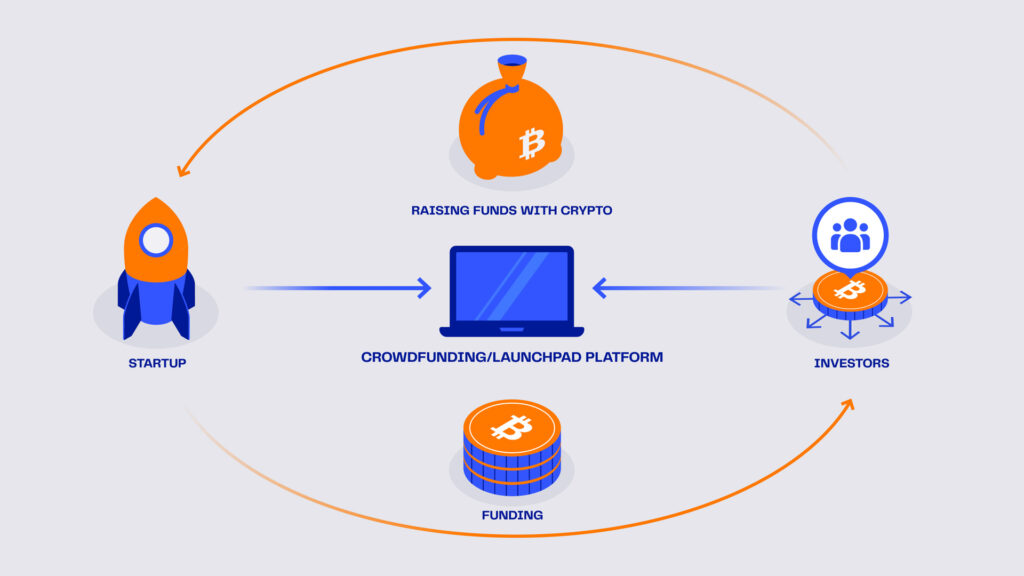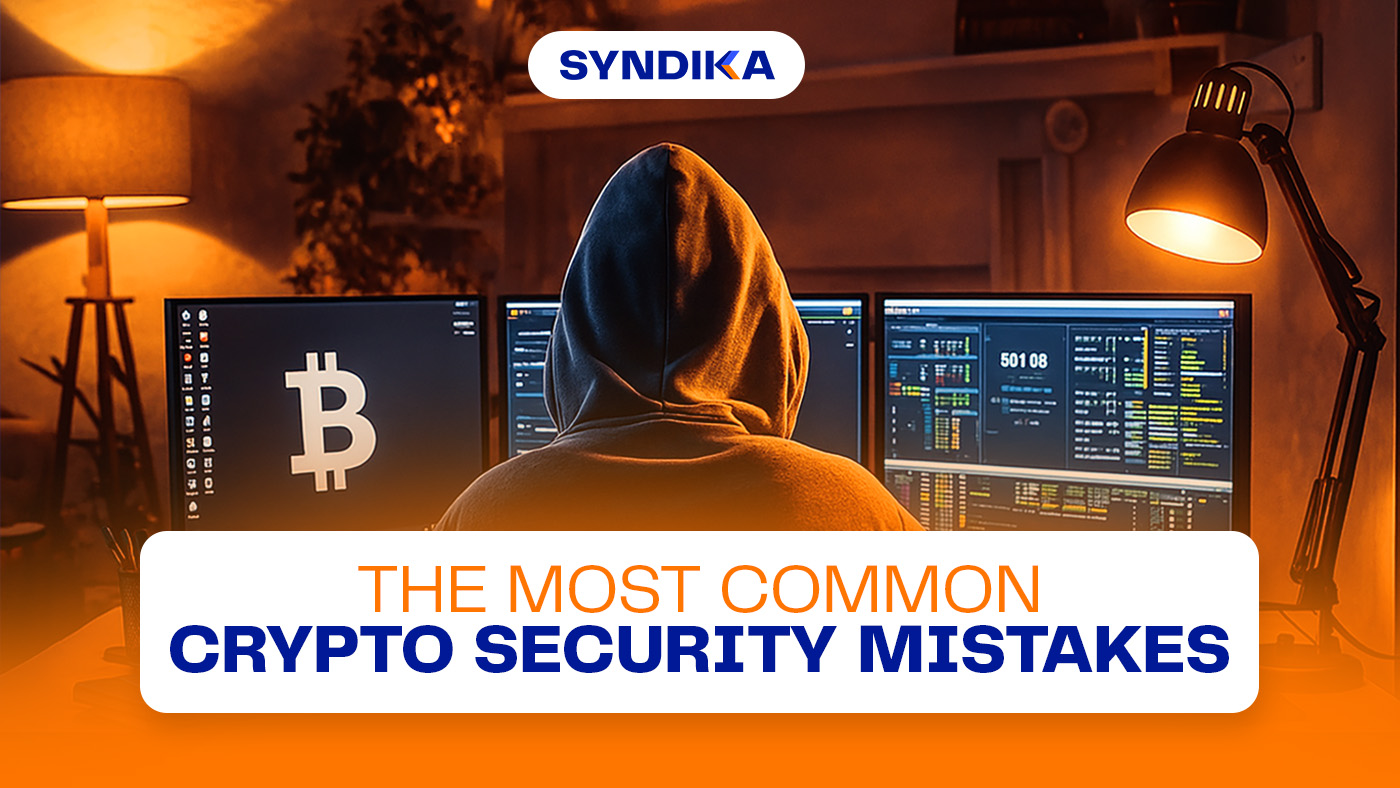
Over the past decade, blockchain technology has gained significant adoption, growing from its origins in the first cryptocurrencies (as of March 2023, approximately 337,263 Bitcoin transactions were conducted in a single day) into a large ecosystem of various solutions.
This growth has extended beyond crypto coins to include decentralized apps, protocols, DAOs, NFTs, and even Metaverses. Actually, it’s Web3, NFT, DAO, Metaverse, and gaming solutions that closed the most deals in Q1 2023 among all blockchain-based startups, according to Galaxy.com
Both founders and investors recognize the potential that recent blockchain technologies can offer to startups and corporations, which is not limited to enhanced security or improved transparency opportunities – probably the most obvious benefits of blockchain.
In this article, we will explore five less-obvious yet significant opportunities that blockchain can bring to your business.
Business Efficiency Improvement
The potential that blockchain technology holds in improving business processes within a company covers multiple ways. For instance, blockchain can automate processes, facilitate the management of large volumes of data, or eliminate the need for intermediaries.
The benefits of blockchain technology are not limited to a particular industry. For example, in the healthcare industry, blockchain can be used to create secure and efficient systems for managing vast amounts of patient records.
By utilizing blockchain technology in online platforms, the process of digital identity verification can be streamlined and expedited, making it easier to comply with Know Your Customer (KYC) procedures.
Furthermore, blockchain technology can be used to facilitate faster money transfers without requiring interactions with centralized bodies such as banks. This approach significantly reduces transaction times and allows fintech solutions to operate more efficiently.
In logistics, blockchain technology can offer a fast and secure way of tracking products throughout the supply chain.
This not only enhances employees’ productivity and business efficiency, but also reduces costs, resulting in significant cost savings.
Access to More Markets
Blockchain technology offers a game-changing advantage for startups with its borderless nature. This means that anyone with Internet access – be it a user, service provider, or potential investor – can leverage or engage with your blockchain-based product. This opens up new and exciting opportunities for your company to access global markets and expand your user base and network of partners.
Moreover, the borderless nature of blockchain technology allows startups to operate in an environment that is not restricted by traditional regulatory frameworks. This can offer greater flexibility and agility to startups, allowing them to experiment and gain access to a larger user base with ease.
Easier Access to Funding

Traditional methods of funding, such as venture capital and bank loans, can be time-consuming and difficult for startups to obtain. These methods often require extensive paperwork, credit checks, and other hurdles that can slow down the process and hinder the growth of your business.
Blockchain technology, on the other hand, has the potential to revolutionize the way startups raise funds. By leveraging cryptocurrencies, Initial Coin Offerings (ICOs), ITOs (Initial Token Offerings), and STOs (Security Token Offerings), startups can access funding more easily and efficiently than ever before.
With the help of such regulated solutions as crowdfunding or launchpad platforms, startups can eliminate the need to interact with traditional financial institutions to raise capital. Instead, investors and platform’s liquidity providers can invest money directly in startups using digital currency.
Moreover, there are borrowing/landing/yield-generating platforms that offer greater flexibility in terms of repayment and collateral requirements, thanks to the use of smart contracts. By automating the lending process, smart contracts can help ensure that startups repay their loans on time, making it easier for them to access the capital they need to grow and succeed.
Decentralized Governance Opportunities
The growing need for transparent and grounded decision-making within a company has led to the creation of decentralized autonomous organizations (DAOs). These entities are based on blockchain and can be seen as digital, decentralized corporations that operate transparently without the need for a central authority or management.
One of the most famous and oldest examples of a DAO is “The DAO,” which was launched on the Ethereum blockchain in 2016. DAOs are typically governed by token holders who vote on proposals or make decisions through the use of smart contracts. The decisions made by a DAO can cover a wide range of topics, including investment decisions, project management, and even governance of the DAO itself.
DAOs are designed to operate in a transparent, decentralized manner, meaning that all actions taken by the organization are recorded on the blockchain and can be publicly verified. This creates a high level of transparency and trust and reduces the risk of corruption or mismanagement within a team.
The use of DAOs can bring significant benefits to startups. By removing the need for a centralized authority, a startup can operate with increased efficiency and transparency, allowing stakeholders to participate in decision-making processes directly. This can result in faster decision-making and greater trust among stakeholders, ultimately leading to the development of a more collaborative and innovative work environment.
Regulatory Risks Associated with DAOs:
In the majority of jurisdictions around the world, DAOs have yet to be regulated. As such, there remains a significant degree of uncertainty surrounding how regulators will ultimately approach these novel entities.
Another potential concern for DAO founders is the classification of DAO tokens as securities. Should this occur, they may find themselves inadvertently in violation of securities laws and regulations. This is a complex matter, and it is crucial for founders to carefully consider the legal implications of establishing a DAO.
To mitigate the risk of non-compliance, we highly recommend that founders seek professional legal advice before embarking on the establishment of a DAO.
New Business Opportunities
Blockchain technology has opened up new business opportunities for startups, providing unparalleled products and services that were not previously accessible and generating new revenue streams.
A noteworthy instance of this is the use of non-fungible tokens (NFTs), which gained tremendous popularity in 2021 after a piece of digital artwork created by Beeple was sold for a whopping $69 million at a Christie’s auction, setting a record for the most expensive NFT ever sold.
NFTs are unique digital assets that are stored on a blockchain and cannot be replicated or exchanged for other tokens on a one-to-one basis. Unlike cryptocurrencies, where each token is identical and interchangeable, each NFT is unique and has its own specific value and ownership.
The usage of NFTs has expanded beyond just buying and selling them as rare collectibles on marketplaces. Nowadays, NFTs can serve as membership tokens for exclusive clubs, events, or services, be licensed to third-party companies or individuals, and even be owned in a Web3 game to represent in-game assets and items.
Currently, NFT functionality can be integrated into any solution, whether it is in fintech or entertainment, providing novel approaches to generating income.
Another promising business opportunity brought by blockchain technology is the Metaverse – a shared virtual space that combines physical and virtual reality. In recent years, a few companies, such as Decentraland, Somnium Space, and The Sandbox, have been working to create Metaverse platforms where users can buy, sell, and create virtual assets and interact with each other.
However, the Metaverse has the potential for applications beyond buying and selling digital assets. Some of these potential applications include:
- Gaming: the Metaverse can serve as a platform for online gaming, creating immersive and interactive gaming experiences.
- Education: the Metaverse can be utilized for conducting lessons, educational competitions, workshops, and more.
- Entertainment: the Metaverse can offer virtual facilities for events, such as concerts or conferences.
- Advertising: businesses can incorporate virtual experiences while advertising their products or services, such as creating virtual billboards, placing virtual versions of their products, creating branded virtual spaces, or partnering with influencers within the Metaverse.
Final Thoughts
The ongoing evolution of blockchain technology presents a multitude of opportunities for innovative businesses to explore and incorporate into their solutions.
As blockchain technology continues to advance, startups and corporations have a chance to leverage its unique features to differentiate themselves from competitors, create new revenue streams, and enhance their overall business success.
By being up-to-date with the latest developments in this space, businesses can stay ahead of the curve and position themselves for long-term success.



